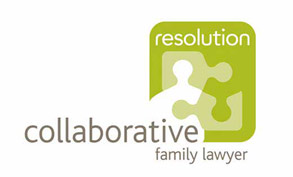Posted on: Sep 10, 2024
Court is the final option?
In the past, there were always opportunities for alternative conflict settlement, which is now known as non-court dispute resolution, or “NCDR,” outside of court procedures.
There is now, however, a significantly higher expectation that parties should actively engage in NCDR throughout the length of proceedings under new process rules that went into effect last month, with potential financial repercussions if they do not. The range of non-confrontational dispute resolution (NCDR) options can result in a far less contentious and expensive conclusion than relying on lengthy divorce court proceedings, which can have a significant emotional toll on the parties involved. However, the court is a blunt instrument and, in certain cases, is the only viable option for determining a fair result.
With the intention of promoting early settlement of private law child and financial remedy procedures in the hopes of more peaceful results for families and lessening the load now placed on the family courts, new family process rules have been in effect since April 29, 2024.
But in practical terms, what does this imply, and how does it affect your case?
NCDR: What is it?
The term “methods of resolving a dispute other than through the court process,” which includes but is not limited to mediation, arbitration, assessment by an impartial third party (such as a private Financial Dispute Resolution procedure), and collaborative law, has been expanded to include those new provisions. The purpose of the intentionally incomplete list is to allow for the future addition of additional NCDR techniques.
The court may even delay a hearing without your approval in order to provide you a chance to participate in NCDR under the new regulations, which give it the authority to instruct the parties to do so when scheduling your case. Throughout the process, NCDR should be actively taken into consideration and should never leave your thoughts.
It will be necessary for parties to fill out a court document verifying whether or not they have participated in NCDR prior to each hearing. The parties must explain to the court why they are now requesting a court order if they show up in court even if they have participated in NCDR.
Does my court application enough with the preliminary Mediation and Information Assessment Meeting (‘MIAM’) that I had to attend?
Not nearly… In actuality, the exclusions meant that parties frequently avoided attending MIAMs, even though the procedure is intended to determine if a case was appropriate for mediation in particular. It is now much more difficult to avoid thinking about whether mediation is the right course of action in your situation because the exclusions are now much more limited.
The new regulations provide that, unless there are exclusions, a party’s failure to participate in NCDR or attend an MIAM shall be taken into consideration for assessing costs orders, particularly in financial remedy situations. As a result, MIAMs will become much harder to avoid, and failing to attend an MIAM or participate in NCDR without a valid excuse will give the court sufficient grounds to think about awarding costs to the party that participates in NCDR minimally or not at all.
The revisions require MIAM providers to inform participants of the possible advantages of NCDR, as well as the best type of NCDR and how to use it. The revisions will also provide the court the chance to decide whether an earlier, legitimate MIAM exemption still applies.
What benefits does NCDR offer over the legal system?
NCDR is known for helping people settle problems in a less confrontational, speedier, and frequently more economical manner. Moreover, NCDR gives you more influence over the procedure as opposed to having the court force a solution on you.
The links to alternatives to litigation, additional information, and commonly asked questions are provided below so you can see whether any of them might be a good fit for you.
Our Team at Baines Bagguley Penhale are qualified to conduct MIAMs (Mediation Information and Assessment Meetings) and offer substantive mediation (with regard to financial and/or child-related concerns). Get in touch with us today.
How can we help you?
We offer straightforward legal advice and assistance for clients in relation to legal matters for both individuals and businesses.






